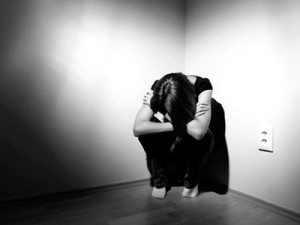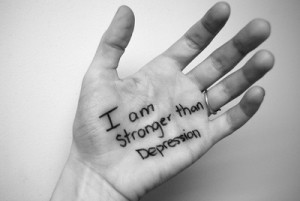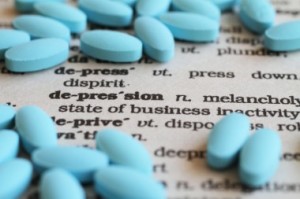
Source: tribune.com.pk
Major Depression and You
Of late, we have been confronted with news in the local media regarding a number of untimely deaths or suicides. These news snippets, which are often distressing, leave the readers thinking, “What drove such a person to do such things?” More importantly, for every one death, it is estimated that twenty others are also affected and these experiences can be traumatic for some.
Although we may never know the reasons for many of these cases, one illness which has often been implicated is major depression or in Malay, masalah kemurungan. For the learned, depression may mean something utterly different from the uninformed and therefore I am compelled to assist in bridging this gap through this article.
What is depression?
Major depression is a mental health condition associated with low mood. Unlike feeling depressed which is a symptom in itself, major depression, also known as major depressive disorder or clinical depression, is a mental illness associated with progressive and often intractable feelings of low mood or a sense of hopelessness. Often these feelings persist for weeks and are felt daily, if not most of the day, which differentiates itself from the usual depressed mood which is often short-lived.
At present, depression is a clinical diagnosis with standard criteria based on evidence. Both the World Health Organization (WHO) and the American Psychiatric Association’s criteria are similar. The criteria states that an individual is diagnosed to have clinical depression if they meet a history of two weeks or more with progressive symptoms (listed below) which is sufficient to cause distress and impairment in daily living.
- Depressed mood or irritable most of the day, nearly every day, as indicated by either subjective report (e.g., feels sad or empty) or observation made by others (e.g., appears tearful).
- Decreased interest or pleasure in most activities, most of each day
- Significant weight change (5%) or change in appetite
- Change in sleep: Insomnia or hypersomnia
- Change in activity: Psychomotor agitation or retardation
- Fatigue or loss of energy
- Guilt/worthlessness: Feelings of worthlessness or excessive or inappropriate guilt
- Concentration: diminished ability to think or concentrate, or more indecisiveness
- Suicidality: Thoughts of death or suicide, or has suicide plan
Therefore, if you feel that you or those close to you may indeed have a number of these symptoms for a significant period of time, it may be time to visit your doctor to seek help or contact the local help available (listed below).

Source: projectlifemastery.com
What is the current situation like?
There is a joke and also a misconception that those in my profession are able to read minds. This is of course, untrue. As Dr. Eugene highlighted earlier in his article, psychiatrists are medical doctors with extra training in mental health and are part of a group of professionals who may assist in alleviating those suffering from mental illness.
At present, major depression has been identified by the WHO to be the fourth cause of global health suffering and research predicts that it will be the primary cause by 2020 in developing nations.
A number of epidemiological studies have reported the lifetime occurrence for depression to be between 11-15% and within the year (current) to be around 5-6%. In Malaysia, the current occurrences of clinical depression in the general population is 2% and among those visiting general practice, 6-14%. There is a higher likelihood of under-reporting of these values within the community due to cultural reasons such as feeling embarrassed and not understanding that prolonged low mood is a problem, to name a few.
What are the causes?
There are a number of factors which may be risk factors to develop major depression. One of them is genetics. Individuals with a family history of major depression may have a higher risk. Also in those with anxious or depressed personalities which are also genetically driven to a certain extent.
Those with impactful life events are also at greater risk. These include psychological childhood trauma or early brain assault due to both physical injuries and drug use. Childhood accidents may lead to greater risk to develop major depression later in life. Those taking drugs, their risk is also greater compared to those not taking drugs, including tobacco smoking.
Certain life events, often negative or stressful may trigger an individual who is already vulnerable to develop major depression and therefor those at risk need to be extra vigilant.
At the brain level however, major depression is believed to be caused by an imbalance of certain chemicals within the brain called neurotransmitters. The main neurotransmitter often mentioned is serotonin, however, lately others such as norepinephrine and also dopamine may be involved. Often, there is a problem with producing, excessive breakdown or problems at the receptor level which may lead to this imbalance.

Source: www.mamamia.com.au
How do we treat it?
Major depression needs to be recognised and diagnosed before treatment is able to be provided. Persons with major depression, depending on their severity can choose either talking therapy (psychotherapy) or medication. Often for moderate to severe cases, a combination of both is given.
Treatment using medication is effective and safe. They are definitely much safer than no treatment. Side-effects are also tolerable and these treatments have already been provided to millions of patients in the world.
Where can I find help?
For those who are feeling low and want to talk to someone, your regular general practitioner should be the first point of contact. All general practitioners are trained to detect and manage mild to moderate cases in the community.
Should you wish to see someone involved with mental illness, you can visit a psychiatrist. Psychiatrists are located in hospitals, both government and private. There is also small number of psychiatrists in private practice. All major hospitals will have a psychiatrist in their service. You can find more here:
http://www.psychiatry-malaysia.org/listcat.php?cid=29&all=Y
http://www.psychiatry-malaysia.org/listcat.php?cid=28&all=Y
In addition, clinical psychologist may also be of assistance, although there are less of them compared to psychiatrists. Some of them however, do work with the latter to form a team which may assist.
To those who are in need, but are not ready to talk face-to-face, a number of NGOs may be able of assistance. Among them are befrienders Malaysia: http://www.befrienders.org.my/
Last but not least, the Malaysian Mental Association may also be able to assist. They have support groups for those interested. http://mmha.org.my/slide/
Dr. Amer Siddiq Amer Nordin is a senior lecturer with the Department of Psychological Medicine, University Malaya. He is also a consultant psychiatrist (Addiction Medicine) and certified smoking cessation specialist and trainer. Among his administrative duties include being the coordinator for the Nicotine Addiction research group of University Malaya Centre for Addiction Sciences (UMCAS). He is also pursuing his PhD at the National Addiction Centre, University of Otago, Christchurch in New Zealand.
[This article belongs to The Malaysian Medical Gazette. Any republication (online or offline) without written permission from The Malaysian Medical Gazette is prohibited.]
References:
- Goodwin, G. (2009). Neurobiological aetiology of mood disorders. In G. Micheal G, A. Nancy C, L.-I. J. Juan J & G. John R (Eds.), New Oxford Textbook of Psychiatry. United Kingdom: Oxford University Press
- Mukhtar, F., & PS Oei, T. (2011). A Review on the Prevalence of Depression in Malaysia. Current Psychiatry Reviews, 7(3), 234-238.
- Kessler, R. C., & Bromet, E. J. (2013). The Epidemiology of Depression Across Cultures. Annual Review of Public Health, 34(1), 119-138. doi: doi:10.1146/annurev-publhealth-031912-114409

Hi, i just want to ask you that last month doctor gave me two box of Rozidal and Luvox… the doctor dont explained much about my condition, instead just gave those drugs to my family to keep it, i dont have any idea what is really happened to me..can you explain to me please… im i sick??
Dear Nadya, Thank you for the question. I would suggest that you talk to the doctor who supplied you with the medications regarding both your diagnosis and also the reasons for the treatment provided. Thank you again for your query and hope that it goes well for you.
I think I have anxiety disorder/depression, I get anxious around people I’ve never met all the time. I never felt this way before, this happen when I was abusing drugs, now I’m clean but the symptoms are still there, is there any self help way to recover from this?
Dear Bob. Thank you for your query. I would suggest you to come and see one of us (in psychiatry) for further evaluation. It is not uncommon that one starts taking drugs for an anxiety or depressive disorder to begin with and on quitting these symptoms recur. A classic example will be using alcohol to get over social anxiety. However, once you have stopped using and depending on the drug of abuse you may be left with either withdrawal symptom or the disorder as a consequence of your previous use. Therefore it would be best to see someone just to make sure all is well. I would like to congratulate you on your current abstinence and I hope that we will be able to assist you further to ensure a better quality of life. I do hope this was of help to you and wish you well in your recovery.
I read an article which states that, depression is actually bipolar waiting to happen. Is that true?